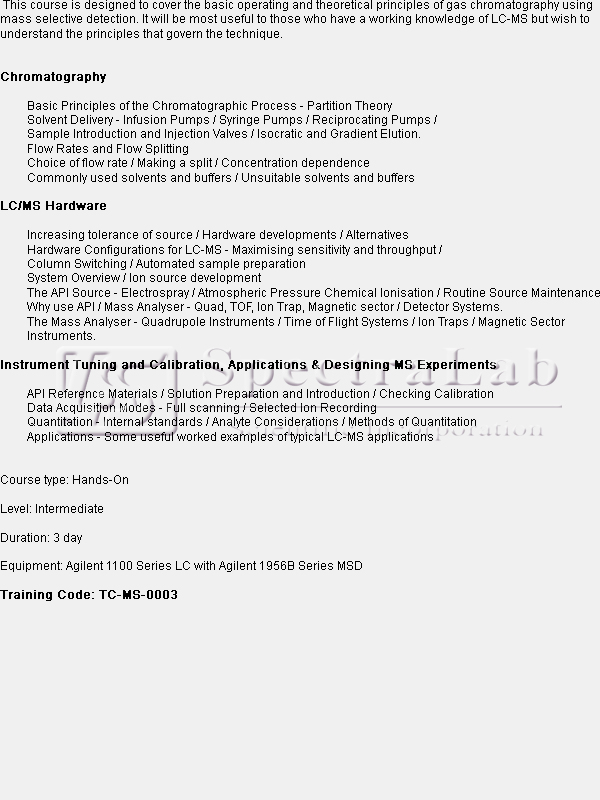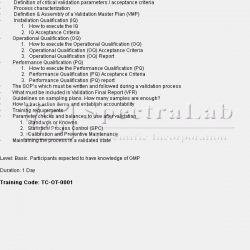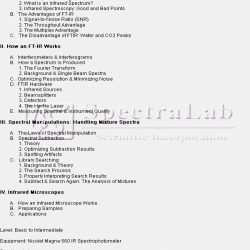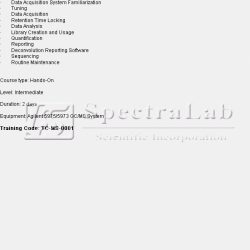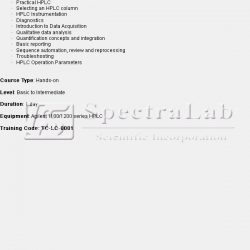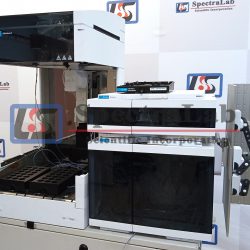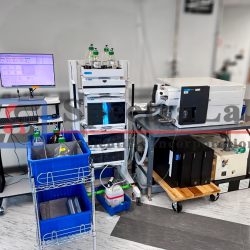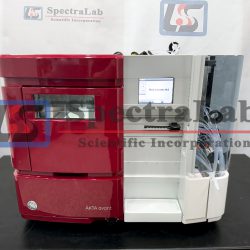This course is designed to cover the basic operating and theoretical principles of liquid chromatography using mass selective detection. It will be most useful to those who have a working knowledge of LC-MS but wish to understand the principles that govern the technique.
Chromatography
- Basic Principles of the Chromatographic Process – Partition Theory
- Solvent Delivery – Infusion Pumps / Syringe Pumps / Reciprocating Pumps / Sample Introduction and Injection Valves / lsocratic and Gradient Elution.
- Flow Rates and Flow Splitting
- Choice of flow rate / Making a split / Concentration dependence
- Commonly used solvents and buffers / Unsuitable solvents and buffers
LC/MS Hardware
- Increasing tolerance of source / Hardware developments / Alternatives
- Hardware Configurations for LC-MS – Maximizing sensitivity and throughput / Column Switching / Automated sample preparation
- System Overview / Ion source development
- The API Source – Electrospray / Atmospheric Pressure Chemical Ionization / Routine Source Maintenance
- Why use API I Mass Analyzer – Quad, TOF, Ion Trap, Magnetic sector / Detector Systems.
- The Mass Analyzer – Quadrupole Instruments / Time of Flight Systems / Ion Traps / Magnetic Sector Instruments.
Instrument Tuning and Calibration, Applications & Designing MS Experiments
- API Reference Materials / Solution Preparation and Introduction / Checking Calibration
- Data Acquisition Modes – Full scanning / Selected Ion Recording
- Quantitation – Internal standards / Analyte Considerations / Methods of Quantitation
- Applications – Some useful worked examples of typical LC-MS applications
Course type: Hands-On
Level: Intermediate
Duration: 3 day
Equipment: Agilent 1100 Series LC with Agilent 19568 Series MSD
Training Code: TC-MS-0003

